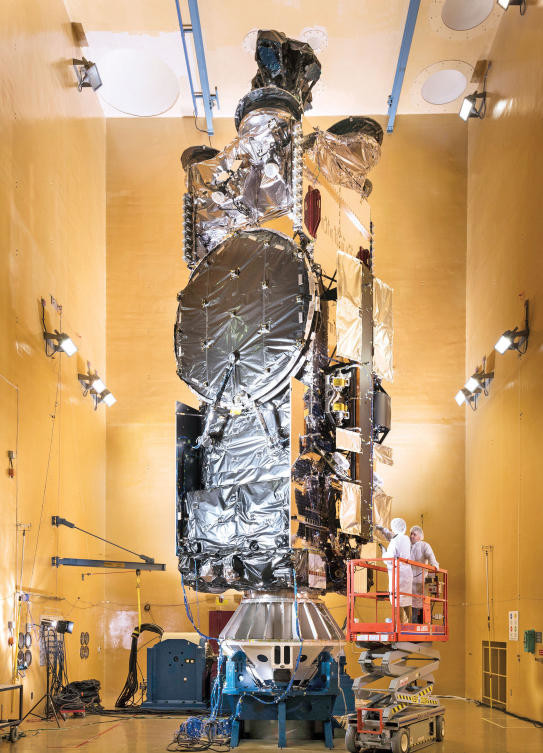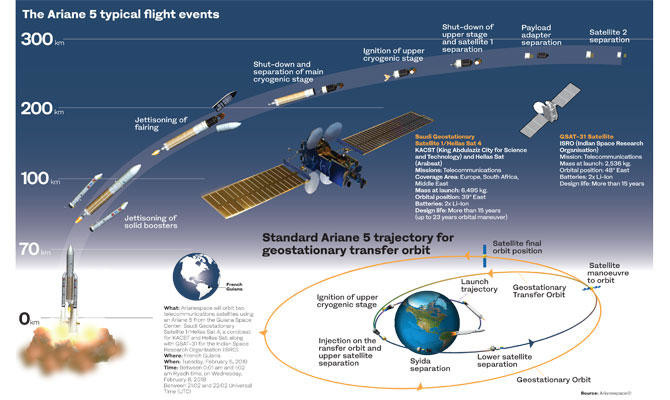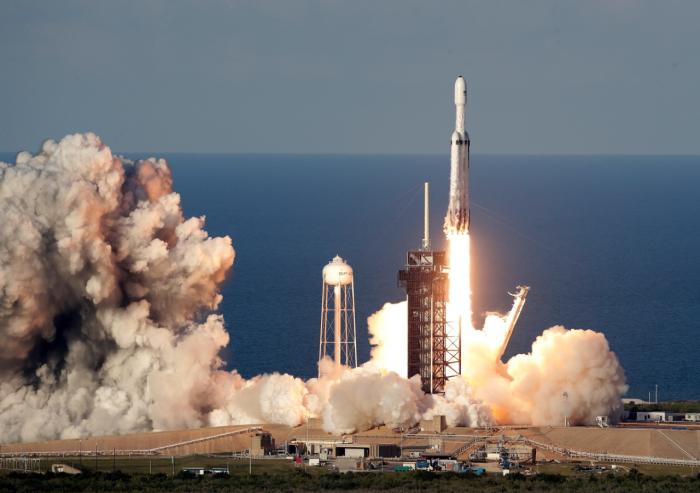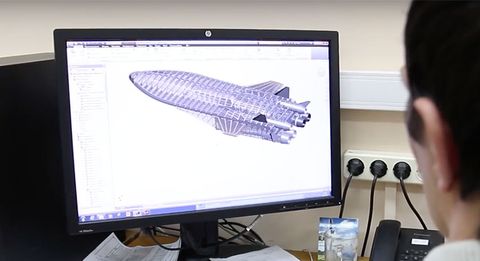Stop trying to start some non-existent fire. Turkey is part of that Islamic Military alliance as well as 95 % of tall Muslim countries in the world.
But like so much else in the Muslim world, that military alliance is de facto of no to little value due to our political (our as in our leaders) political differences and fight for dominance/power.
KSA/large parts of the Arab world-Iran (since 1979) have been in a semi-cold war (sometimes with good/cordial relations other times not) but there have never been a direct war and there likely won't ever be despite the many disagreements, as there would be no winner. The only regional winners would be Turkey and Israel and both KSA and Iran are well aware of this. Moreover nobody knows what the future has in store. What is certain is that KSA/GCC/Iraq (this part of the Arab world) and Iran will remain neighbors unless we both somehow disappear from this earth.
Stop trying to turn this thread into the usual Pakistan-India mud-slinging. This is about the F-35 and KSA.
Maybe this will help you, bro.
Satellites of Saudi Arabia
Satellites of Saudi Arabia
Communication Arabsat
KACST Space Research Institute
Earth Observation KACST
Science, Technology & Education General / Multi discipline
https://space.skyrocket.de/directories/sat_c_saudiarabia.htm
https://space.skyrocket.de/directories/sat_c.htm
For those interested in seeing the number of Arab satellites in orbit or Arab satellites that were once in orbit many years/decades ago.
@The SC
Do you agree with what some highly respected Arab contributors online are saying about KSA's most likely existing ability (de facto) to put a satellite into space using our existing ballistic missiles and existing missile force (RSSMF) courtesy of the Chinese, Ukrainian and most likely Pakistani cooperation? What is holding the leadership back, you think? Possible political pressure, can't think of anything else, given the secrecy of our ballistic missile program and already existing arsenal.
Saudi Arabia to launch 16th satellite into space
1 / 3
2 / 3
3 / 3
Updated 06 February 2019
RUBA OBAID
AMEERA ABID
DEEMA AL-KHUDAIR
February 05, 2019 01:27
- King Abdul Aziz City for Science and Technology, Lockheed Martin collaborated to manufacture SGS-1
JEDDAH: The Kingdom will launch its 16th satellite into space on Tuesday: The Saudi Geostationary Satellite 1 (SGS-1).
It will provide telecommunications capabilities, stronger internet connectivity, TV and secure communications in the Middle East, North Africa and Europe.
Developed by a team from King Abdul Aziz City for Science and Technology (KACST), it will be launched in French Guiana by Arianespace, which provides launch services for all types of satellites.
KACST, a government institution that supports and enhances applied research, collaborated with Lockheed Martin to manufacture the SGS-1.
The institution has so far launched 15 satellites into the low Earth orbit, said the SGS-1 program director from KACST, Dr. Badr Al-Suwaidan.
KACST has collaborated with China in the Chang’e 4 mission to explore the far side of the moon; provided advanced services for remote-sensing systems; and participated in the launch of an advanced system for maritime monitoring and tracking with satellite data, which includes daily coverage of 30,000 vessels worldwide.
Lockheed Martin is a global security and aerospace company that is engaged in the research, design, development, manufacture, integration and sustainment of advanced technology systems and services. Its relationship with Saudi Arabia began in 1965.
“Our goal is to deliver advanced technology and security solutions to the Saudi government and commercial sector in support of Vision 2030,” said Chief Executive for Lockheed Martin Saudi Arabia Joseph Rank.
The SGS-1 was manufactured, tested and operated with the participation of Saudi engineers and scientists.
The agreement of the launch service between Arianespace, Arabsat and KACST was announced in 2015.
In 2018, Saudi Crown Prince Mohammed bin Salman oversaw manufacturing stages during his visit to Lockheed Martin’s San Francisco headquarters.
During this visit, the crown prince signed the final piece that was to be placed on the SGS-1 before its launch, with the words: “Above the highest clouds.”
The satellite will be launched by the Guiana Space Centre, which is located in French Guiana because it is near the equator; it has a small population; and it is not prone to natural disasters. The vehicle that will launch the satellite is the European Ariane 5.
The SGS-1 “provides secure satellite communication on the Ka-band for the government of Saudi Arabia. It provides 35 gigabits per second,” said Al-Suwaidan, hailing “a new era.”
The Ka-band allows for higher bandwidth communication, supporting greater frequency reuse in geographically isolated spots.
Spot beams are satellite signals that are concentrated in power so that they cover a limited geographic area.
Spot beams are used so that only Earth-based stations in a particular area can properly receive the satellite signal.
“The program includes technology transfer for more than 15 engineers trained and certified by the manufacturer Lockheed Martin,” said Al-Suwaidan.
There will be more “space achievements under the new Saudi space authorities,” and under “the leadership of the first Arab astronaut, Prince Sultan bin Salman,” Al-Suwaidan added.
The SGS-1 was assembled at Lockheed Martin’s facilities in Denver, Colorado and Sunnyvale, California. In Sunnyvale, it underwent critical environmental testing.
“We had a very accommodating and smooth launch campaign thanks to the team from KACST, Arabsat and Lockheed Martin. We’re ready for the launch,” said Al-Suwaidan. “We’re grateful for the collaboration and service provided by Arianespace.”
The SGS-1 will be the 46th Lockheed Martin satellite to be launched by Arianespace. The launcher’s main stage will splash down in the Gulf of Guinea.
Thierry Fahem, the SGS-1 program director from Arianespace, wished the satellite “a long life.”
https://www.arabnews.com/node/1447201/saudi-arabia
Saudi Arabia’s Arabsat 6A Satellite Successfully Launched from Florida
Arabsat 6A is a high-capacity telecommunications satellite that will deliver television, radio, Internet, and mobile communications to customers in the Middle East, Africa, and Europe
Dr. Shaul Shay | 14/04/2019

Send to a friend
A+A-Size
Share on
Share on
A SpaceX Falcon Heavy rocket carrying the Arabsat 6A satellite lifts off from Cape Canaveral (Photo: AP)
Saudi Arabia has launched Arabsat 6A telecommunications satellite on April 12, 2019. The satellite was launched on board a SpaceX Falcon Heavy rocket from NASA’s Kennedy Space Station in Florida.
The Lockheed Martin-built Arabsat 6A Satellite is a high-capacity telecommunications satellite that will deliver television, radio, Internet, and mobile communications to customers in the Middle East, Africa, and Europe.
Saudi Arabia has boosted efforts to expand its space program through the King Abdulaziz City for Science and Technology (KACST). Riyadh has long-term space ambitions and relies on the support of the United States, France, China, and Russia.
The SGS-1
The first Saudi satellite for communications (SGS-1) was launched On February 5, 2019. The operation was carried out by Arianespace.The satellite was launched from the Guiana Space Center on an Ariane 5 rocket, which also carried into orbit the GSAT-31 satellite for the Indian Space Research Organization (ISRO), as well as the Hellas Sat 4 (HS-4). GSAT-31 and SGS-1-HS-4 are designed to operate for at least 15 years, Arianespace representatives said.
A team from the King Abdulaziz City for Science and Technology developed the satellite in collaboration with Lockheed Martin. The SGS-1, which is the first satellite of its kind to be owned by the Kingdom, was developed to provide secure communications, internet connectivity and television signal across the region.
The Saudi communications satellite employs hybrid (electric and chemical) propelling systems which have helped to reduce the satellite’s weight while increasing its life expectancy. It weighs 6.5 tons and has a life expectancy of over 20 years. It also uses advanced technologies enabling it to provide highly secured and anti-interference telecommunications.
Executive Vice President of Lockheed Martin International, Richard Edwards, lauded his company’s strategic partnership with Riyadh, saying: “The successful launch is a first step in our unique partnership with KACST and Saudi Arabia, which is established on innovation, science, technology and human resources development.”
Sat 5A and Sat 5B
On December 7, 2018, the King Abdulaziz City for Science and Technology announced the successful launch of the Saudi Sat 5A and Saudi Sat 5B satellites on board the Long March 2D space rocket from the Jiuquan Satellite Launch Center of the People’s Republic of China.
The two satellites provide government agencies with high-resolution satellite images similar to those in developed countries for use in various fields. The two satellites are managed and operated from an advanced control station located at the KACST headquarters.
Saudi expertise and competencies working in the field of satellite industry and development manufactured and tested the two high-accuracy remote-sensing reconnaissance satellites in accordance with the international standards in KACST laboratories.
Summary
The launch of the new satellite comes as part of the Kingdom’s Vision 2030 aiming to localize strategic technologies. The Kingdom seeks, through the space and aeronautical technology program, to achieve regional leadership in this vital sector relying on its preeminent position and vital capabilities that will allow the country to obtain its objective.
The Saudi Arabian Vision 2030 is the roadmap for this effort, and creating a high-technology research and industrial sector – such as space and satellite programs – is an important priority for Riyadh.
King Abdulaziz City for Science and Technology has already launched 16 Saudi satellites between 2000 and 2019. It also participated in the implementation of scientific experiments in outer space in cooperation with the US space agency (NASA) and Stanford University on board the satellite Saudi Sat 4 in 2014. KACST also participated in the exploration mission of “Changi 4” Satellite with China.
[Sources: Arab News, The National, Space.com, Asharq Al Awsat, Al Arabiya]
https://www.israeldefense.co.il/en/node/38128
See more in this thread or the "made in KSA" thread on this section.
https://defence.pk/pdf/threads/11-a...-nasa-launch-own-space-program.627112/page-14
BTW while KSA is developing quickly and impressively in recent years (not withstanding that the state is notoriously secretive), there is still tons to learn and do. I am not going to be deluded like certain other regional entities and proclaim regional hegemony etc. nor do I believe that this should be the goal for KSA, unless future leaders will turn braindead and waste the money of the nation on policing the region and other fantasies. Such a thing would only make sense in the case the Arab world united and became a truly global superpower/powerhouse but I am not sure that this will occur in my lifetime again like in the past.

















